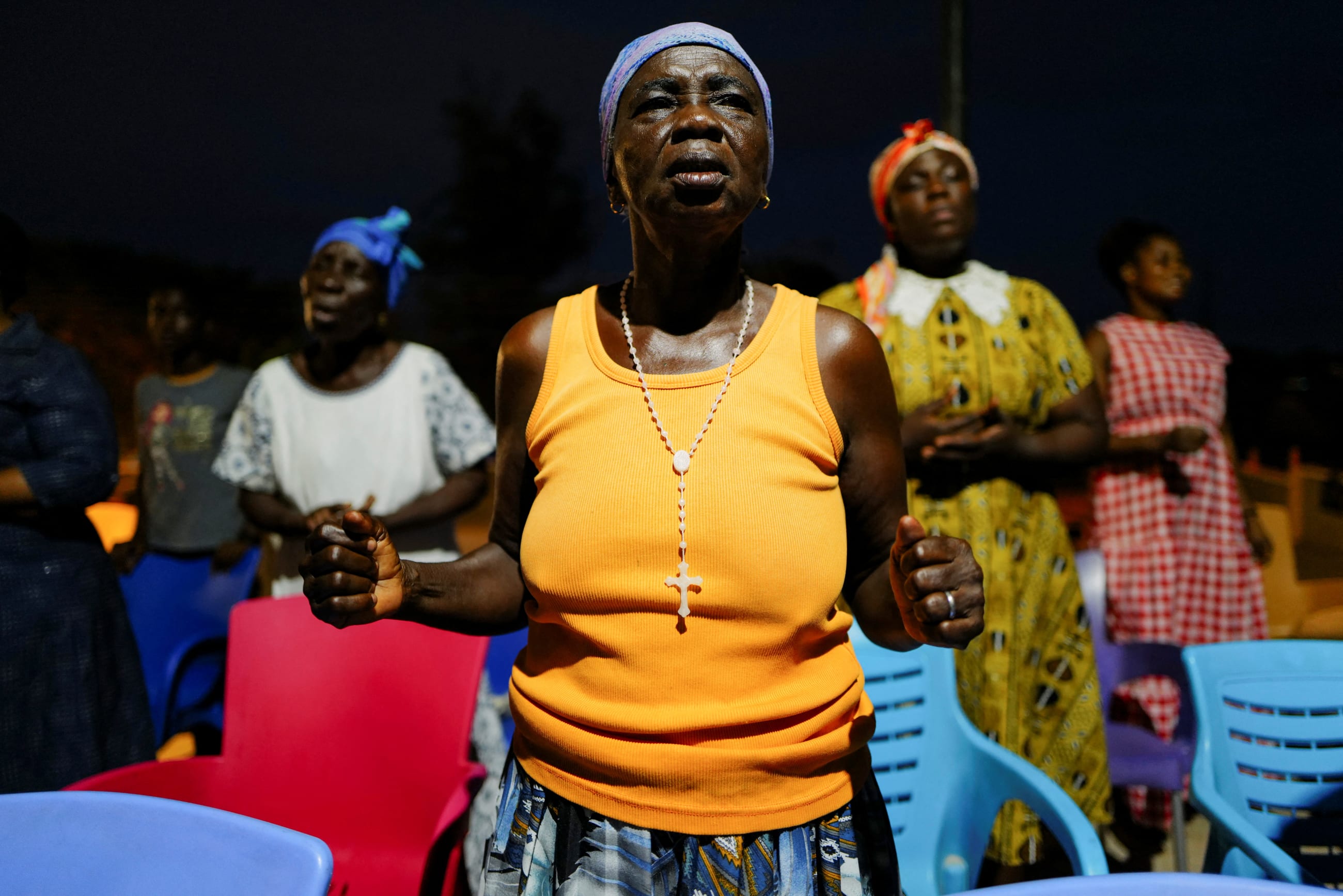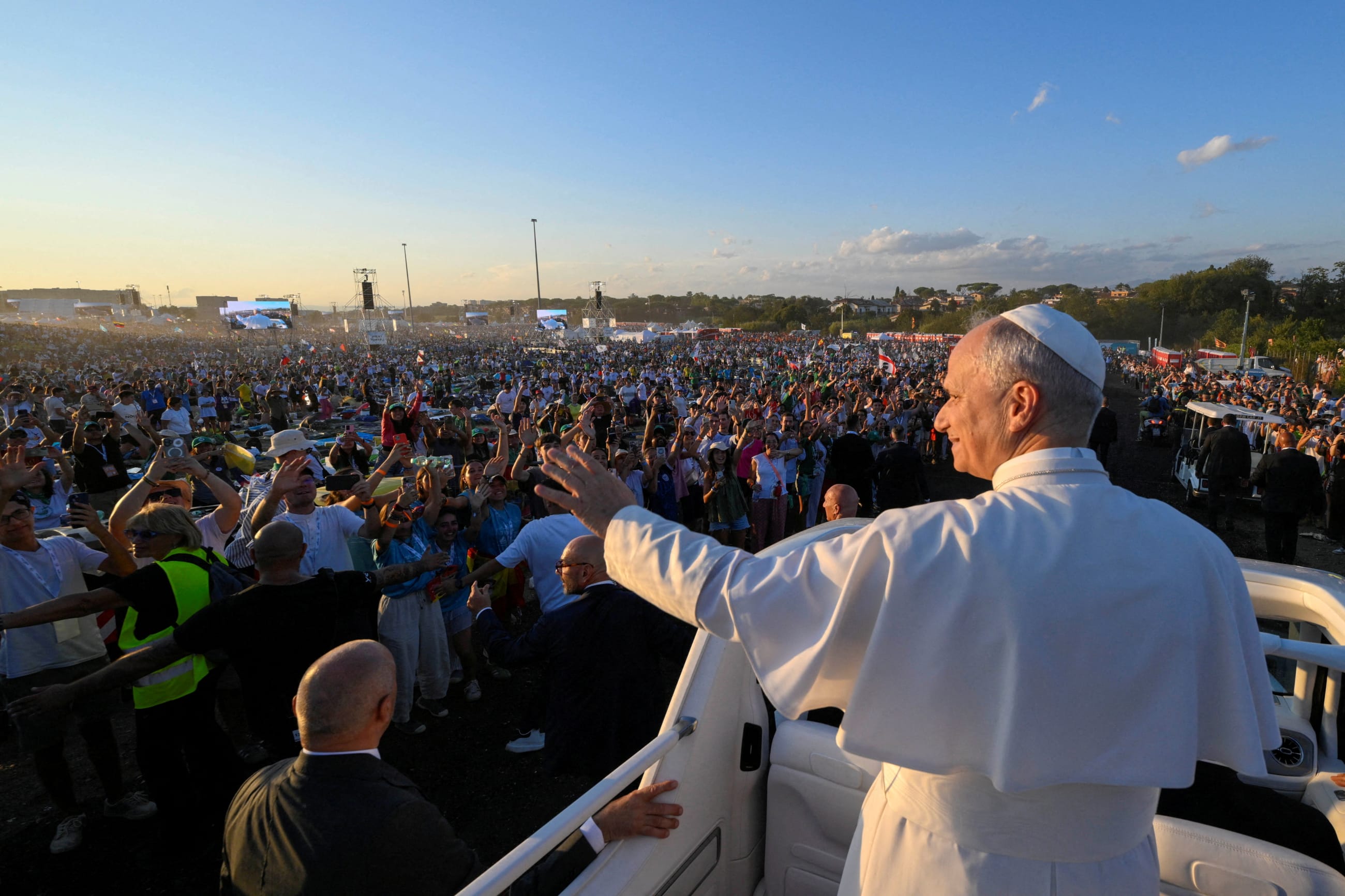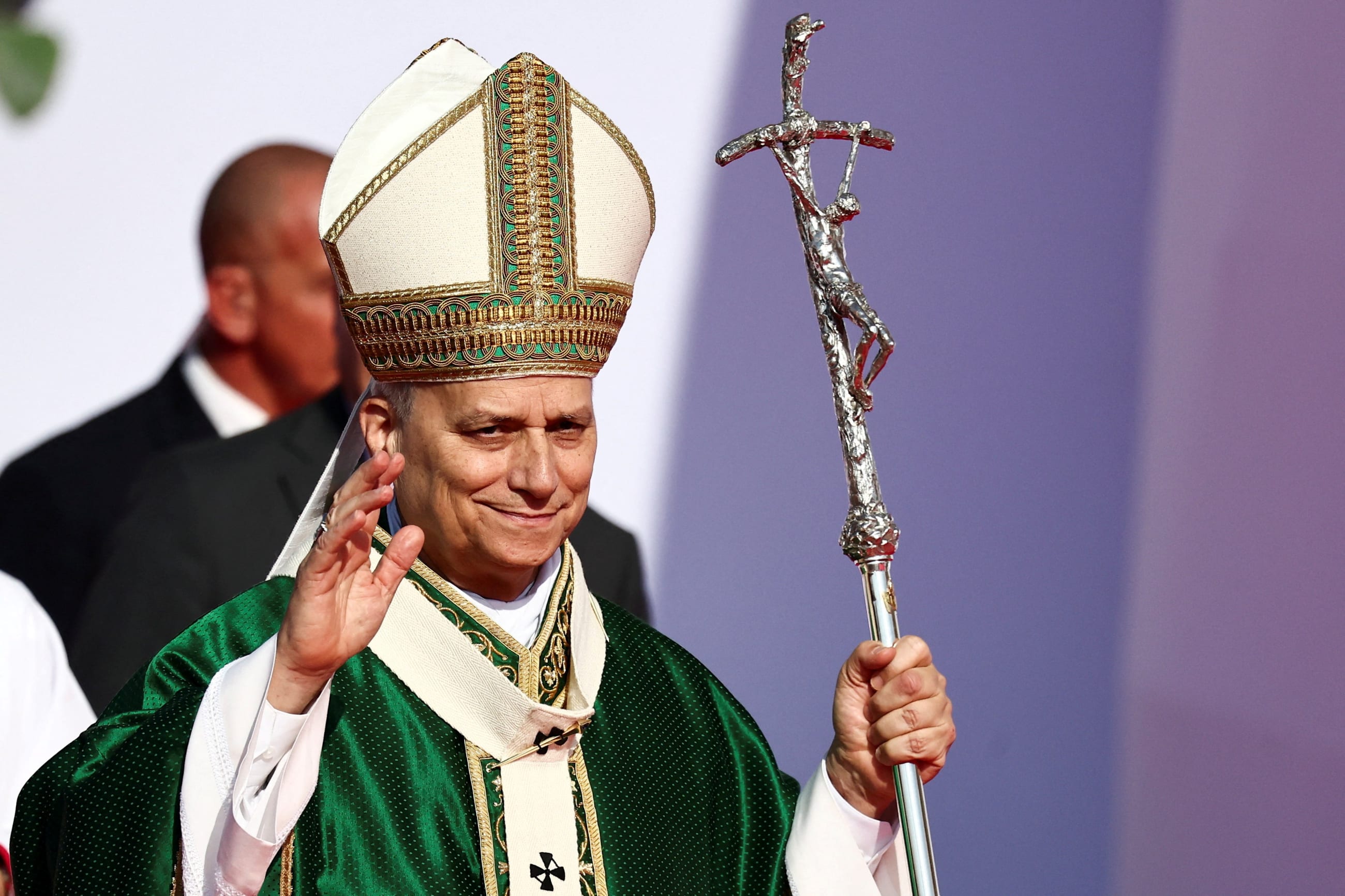How a pope chooses to lead in global health can be catalytic, especially given that the Catholic Church is the world's largest nongovernmental provider of health care. Before becoming pope, Robert Prevost was bishop of Chiclayo, Peru, from 2015 to 2023, where he was hands-on during catastrophic flooding, a dengue fever outbreak, and the worst of the COVID-19 pandemic, when he led the Oxygen of Hope campaign to address critical oxygen shortages.
Nearly 100 days into his papacy, it is too early to determine what Pope Leo XIV's mark on global health will be, but top leaders and policy experts contacted by Think Global Health focused on the pope's "deep roots in serving vulnerable communities" and expressed optimism regarding his role in strengthening health-care systems.
Pope Leo XIV is the first Augustinian to become pope. St. Augustine is credited with saying, "Take care of your body as if you were going to live forever; and take care of your soul as if you were going to die tomorrow." These are hopeful words for global health.
Pope Leo XIV's namesake could hold some clues to how he will approach health. Pope Leo XIII served from 1878 to 1903, during the rise of the industrial age and a time of important public health advances. He was concerned with worker exploitation; poverty, inequality, and illness; and access to critical services including medical care, vaccines, and improved sanitation. In 1891, he issued his encyclical Rerum Novarum translated: On the Condition of the Working Classes. This work is a foundational text of Catholic social teaching. With it, he established workers associations and mutual aid societies and expanded the Society of St. Vincent de Paul.
Pope Leo XIV's lived experience also provides clues. "You see instantly how close Pope Leo was to the people of Peru," Sister Carol Keehan DC told Think Global Health. Sister Keehan, former president and CEO of the Catholic Health Association of the United States, spent decades managing Daughters of Charity hospitals. "If you are very close to people you know how profoundly they need health care and how difficult it is to obtain it," Sr. Keehan says. "You see the consequences of postponing care and/or forgoing it. . . . My sense is [that Pope Leo] will keep this intolerable situation clearly in front of the Church as a responsibility and ministry."
Health is not merely the absence of illness but a crucial element of integral human development
Sean Callahan, Catholic Relief Services
Laura Braga, who heads international relations for Doctors With Africa, the first Catholic nongovermental organization to be recognized by the Italian government, notes Pope Leo's extensive work with elderly and marginalized populations during his years in Peru and Chicago. She suggests that his papacy "may amplify a compassionate, community-driven model of health care." She also cites his commitment to fostering unity. In his very first address, he called on Catholics to "build bridges" to promote dialogue and unity, a phrase Pope Francis frequently used. The new pope has also continued Francis's focus on the needs of migrants and people facing poverty.
Sean Callahan, president and CEO of Catholic Relief Services, emphasizes the pope's reach. "His influence can reshape the conversation, highlighting that health is not merely the absence of illness but a crucial element of integral human development."
Recent Efforts
Among the Church's more recent global health efforts that have proven both influential and effectual, is the Vatican's Dicastery for Promoting Integral Human Development pilot initiative to improve critical water, sanitation, and hygiene (WASH) in Catholic-run health-care facilities. WASH conditions are universally problematic across 60 fragile countries where 37% of all health-care facilities do not have even basic water services, and just 19% have basic sanitation services. The Church runs a quarter of health-care facilities worldwide, and many of these facilities provide the only available health care in their area.
Beginning in 2020, WASH conditions in 150 Catholic health-care facilities on three continents were assessed [PDF] and now are being addressed by experts from Catholic Relief Services and Daughters of Charity. This pilot project affects a total catchment of 28 million people and is a powerful example of the impact the Vatican can have on improving global health. It has also inspired more Catholic health-care facilities to examine WASH conditions; increased the Catholic Church's focus on sustainability; and provided an example to Anglican, Methodist, and Muslim leaders exploring their own initiatives.

Bishop John C. Ndimbo, bishop of Mbinga, Tanzania, is among the participating diocesan leaders. In his remote community in southwestern Tanzania, the main health-care facility is a critical lifeline for more than 5,000 people. But it had no water supply and only broken-down, substandard latrines. Now, with both outside expertise from the Water Engineers for the Americas and Africa (WEFTA) and extensive community engagement, the hospital and community are transformed.
The impact is doubly impressive, according to the bishop, because waterborne diseases including typhoid, dysentery, and intestinal worms have been all but eliminated. Improvements will benefit generations. "It is my conviction that through this initiative, the Vatican believes investing in basic social services is crucial and fundamental toward holistic human redemption and development," he says.
Bishop Ndimbo recalls that when the pope was bishop of Chiclayo, he made a number of visits to Africa, including to Tanzania, where he stayed and worked with friars. Because the new pope has seen firsthand health issues facing Africa, the bishop is optimistic. "I see some promising bright days to come for the improvement of the global health sector and modern health care on the African continent."
Nkatha Njeru, CEO of the African Christian Health Association Platform, a network of 43 national Christian health organizations in 34 countries, has seen the impact the Vatican made when it engaged in pediatric formulations for HIV. Now she would like to see the pope help replace the stigma around mental health services and help increase "equity and ethics" in the pharmaceutical industry with improved access to life-saving medicines and technologies.
Leaders of non-Catholic and secular organizations are also encouraged by Pope Leo's ascendance into global leadership. "This is wonderful news to those of us who work in serving the poor," says Greg Allgood, vice president of World Vision USA. "Pope Leo XIV could make a dramatic impact on the level of health available to all," says Barry Rassin, former president of Rotary International.
As part of the Global Polio Eradication Initiative, Rotary International is helping lead the way to eliminating the disease. "His words to encourage vaccination against polio, measles, and other diseases could change the direction of these diseases by providing more immunity. His encouragement to help those in other countries to have access to basic care and to potable water would change the lives of millions. That change would then improve the level of education and have a positive economic impact with more individuals able to contribute their efforts to making our communities more positive."
As countries such as the United States cut foreign aid, the pope "could use the opportunity to encourage African governments to similarly invest in the health of their citizens and speak against corruption that has left people vulnerable," Njeru says. "It would be strategic, especially in this era when philanthropy specifically for health is under pressure, to encourage the Church and communities to invest in health as a form of social justice and love in action." Allgood hopes that "Pope Leo will encourage Christians to step into the gap. As the spiritual leader of 1.3 billion people and a moral authority to encourage all Christians, His Holiness has the ability to rally the Church to tackle extreme poverty, including the global water crisis and global health needs."
Callahan underscores this last point. "In an era when isolationist tendencies and rising tensions threaten collaboration, prioritizing global health serves as a powerful reminder that we are all part of a shared existence," he says. "Health knows no borders. What affects one nation inevitably affects others."













